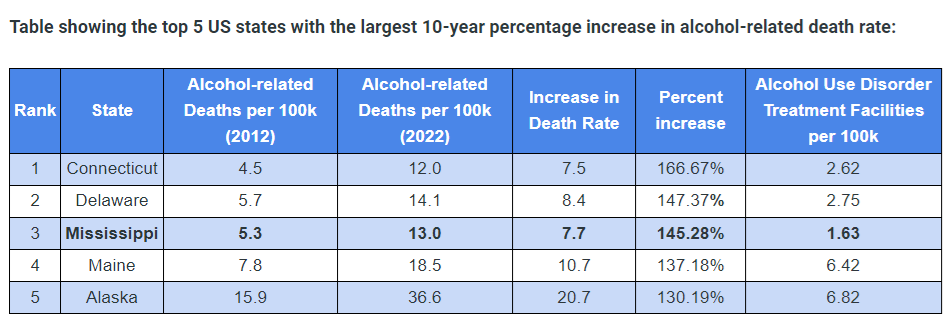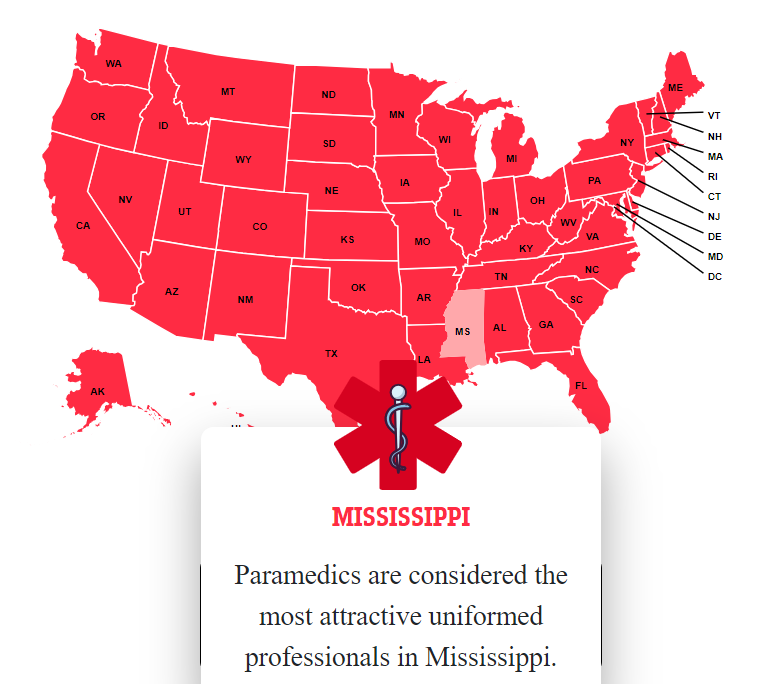A recent report by addiction experts reveals that Mississippi’s alcohol-related death rate has more than doubled over the past decade, making it the third-largest percentage increase in the nation.
Key findings in the study by a group called Lantana Recovery are as follows:
- Mississippi’s alcohol-related death rate has marked a 145.28% increase from 5.3 in 2012 to 13.0 in 2022, the third-highest percentage increase recorded among all US states.
- Mississippi’s alcohol-related death rate has increased by 7.7 per 100,000 over the last ten years.
- Excessive alcohol use cost Mississippi $2.27 billion in lost work productivity, healthcare costs, criminal justice expenses, motor vehicle crashes, and property damage.
- Mississippi currently has approximately 1.63 treatment facilities per 100,000 people for alcohol use disorder, ranking 43rd in the nation for treatment facilities per capita.
- Mississippi’s current alcohol-related death rate of 13.0 per 100,000 people is slightly below the national average of 13.53 deaths per 100,000 people.
“These alarming statistics highlight the critical need for comprehensive public health interventions. Although Mississippi’s alcohol-related death rate remains slightly below the US national average, the dramatic rise in the percentage increase is a wake-up call,” said Lindsay Richerson, Executive Director at Lantana Recovery. “There is an urgent need to invest in preventive measures and treatment options to combat this growing crisis. Mississippi’s ranking of 43rd in treatment facilities per capita shows that there is significant room for improvement in making treatment more accessible.”

The economic burden of excessive alcohol consumption, amounting to $2.27 billion annually, underscores the urgency of addressing this issue, Richerson continued.
“The impact on productivity, traffic collisions, and the criminal justice system is profound. By investing in early intervention and comprehensive care, we can save lives and reduce these costs,” she said.
Richerson encourages education and unity when it comes to dealing with the problems caused by alcohol addiction.
“Communities across the nation must come together to support those struggling with alcohol misuse. Recognizing the signs of addiction early and providing accessible resources can make a significant difference,” she said. “It’s not just about treatment; it’s about creating an environment where individuals feel supported and empowered to seek help.”





















